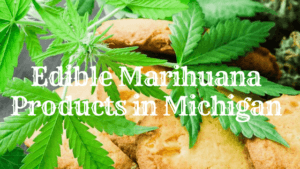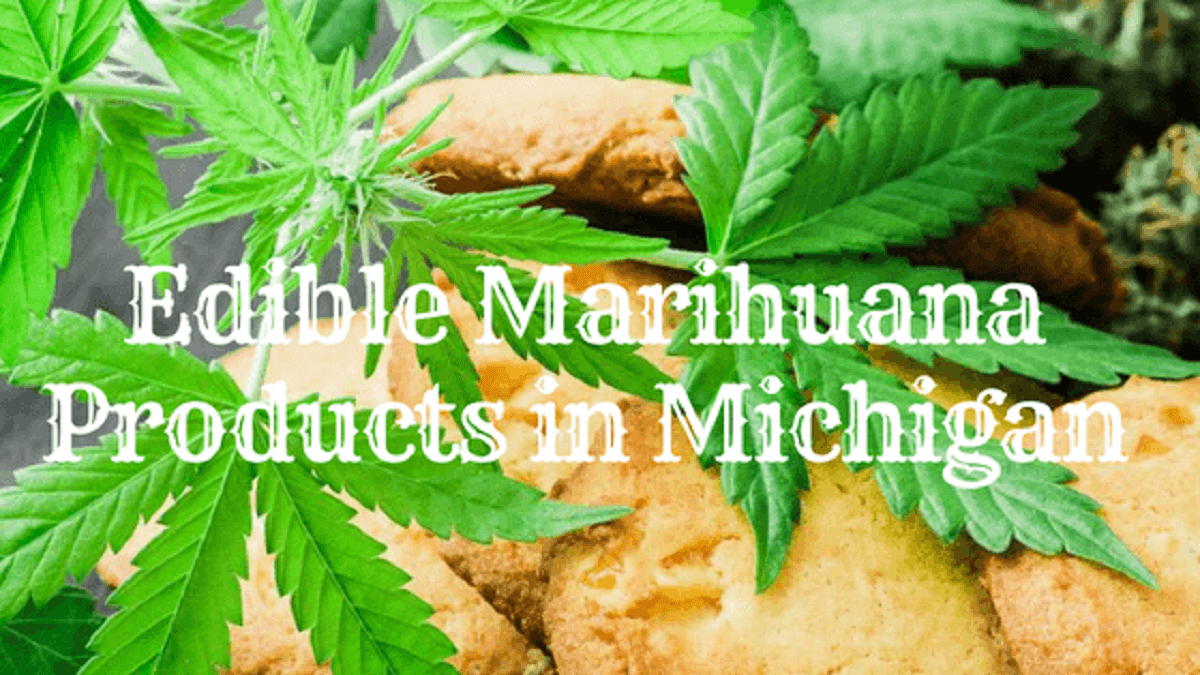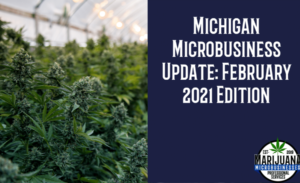Michigan’s Department of Licensing and Regulatory Affairs (LARA) recently put out an advisory bulletin explaining the importance of processing safe, edible medical marihuana products. This advisory was put out to help guide Michigan Cannabis businesses looking to obtain a processor license under Michigan’s Medical Marihuana Facilities Licensing Act (MMFLA). The advisory sets forth guidelines for the production of edible Marijuana products in Michigan.
Under the MMFLA, processors have the freedom to be creative and innovative while making marihuana infused products for the medical market. Processors are able to produce edible products ranging from your typical brownies, cookies and candy to not-so-common items such as salad dressing or hot sauce. Some of these products were discussed in our earlier article, “What Can You Do With An MMFLA Processor’s License”.
As processors, you have a world of possibilities when it comes to producing edible products. However, it is important to be aware of the limitations in the MMFLA and emergency rules for edible products and packaging that MMFLA allows.
What exactly do we mean by edible?
The term “Edible marihuana products” refers to any marijuana-infused product that is safely intended for non-smoke inhaled, human consumption. Essentially, this is any product that can be eaten or drank rather than smoked. This could include:
| Baked Goods | Snacks | Other common items |
|
|
|
No Cold Goods
For safety, the MMFLA Emergency Rules restrict processors from making cannabis products that require refrigeration. Typically, foods that require refrigeration need the cooler temperatures to prevent the growth of microorganisms and toxins. These type of foods have a higher probability for bacteria, protozoa, and fungi, which can cause foodborne illness such as botulism.
This means that all marijuana-infused products must be “shelf stable”, though that doesn’t mean you can’t sell cold products at all. For instance, a beverage that does not need to be refrigerated can still be sold refrigerated—the key is simply that it doesn’t need to be refrigerated.
Shelf Stable? What’s that?
Foods that can be stored on the shelf safely at room temperature are called shelf stable. The list of foods that meet this criteria is extensive, but it’s likely that if a food item has the label “Keep Refrigerated”, it is not shelf stable.
To make perishable food shelf stable, LARA requires that the food be heat treated or dried to destroy the microorganisms that spoil food and cause foodborne illness. You will also need to be able to provide proof to LARA that the marijuana-infused edibles have been properly processed.
Heal, not hurt
The writers of the MMFLA had patient safety in mind when enacting Michigan’s medical marijuana facilities law, as did LARA when enacting the Emergency Rules. The goal of medical cannabis has always been to provide patients with plant based alternatives to other chemical healing methods and traditional palliative care. In other words, if your products are shelf stable, they are less likely to cause foodborne illness in patients and therefore more likely to help “heal” a patient taking the product for medical use.
Because edible CBD and marihuana products are made from plants, additional considerations have to be made when processing products. This is to make sure that patients are only receiving the intended medical benefits from edible product and not unwanted illnesses. Some examples of products that are NOT able to be produced as edible marihuana products are:
| Desserts | Fruit and vegetable products | Meat and Dairy |
|
|
|
This list may seem long and limiting, but many products on this list can become shelf stable if additional processing steps are taken to make the end product safe for extended shelf life. There are quite a few ways that you can consider making your medical edible products shelf stable.
Drying
People have been preserving foods by drying for centuries if not millennia. There are two types of drying: heat drying and freeze drying. Heat drying, as the name suggests, requires heat from the sun or an artificial source. Special containers are available that capture heat and dehydrate the food item.
Meat when dried without cooking still can pose a health risk and cause foodborne illness. When cooked, the meat must have enough water removed so that microorganisms are unable to multiply. Unfortunately, bacteria that are not destroyed by cooking can survive the drying process and still cause illness.
Freeze drying makes foods shelf stable by placing food in a vacuum cabinet. This method essentially transforms ice from it’s solid state directly to a vapor state, which is then used to quickly freeze dry the product. Freeze dried products must be rehydrated with water for consumption, and the packaging must be moisture proof to prevent it from spoiling and bacteria growth.
Packaging
Last but not least is packaging, which was discussed in our previous guide for Michigan processors and provisioning centers, which discussed packaging requirements. Packaging can be used to stabilize edible products. Two common types of shelf stable packaging are retort pouches and aseptic packaging.
Retort pouches are made from layered polyester, aluminum foil, and polypropylene. Commercial sterilization occurs at temperatures greater than 212 °F, typically 240 to 250 °F. The pouch is then filled with product and then sealed and heated to make it sterile. The retort packaging is shelf stable at room temperature.
Aseptic packaging is a laminate of three materials: high-quality paperboard, polyethylene, and aluminum. The thin layer of foil forms a barrier against light and oxygen, removing the need for refrigeration. These packages are commercially sterilized by ultra-high heat and then rapid cooling.
Conclusion
Marihuana infused products are essential to the medical cannabis industry. Processed marijuana products, just like any other processed food sold at a grocery store, are subject to food safety requirements. Understanding safe ways to process Cannabis products is crucial to the success of any MMFLA-licensed processor in Michigan.
If you have specific questions about your business, or are wondering how to get started, contact Scott F. Roberts Law for a free consultation.
Uduak Eyo is a law clerk for Scott F. Roberts Law, a boutique business and real estate law firm focusing on the medical marijuana and hemp industries.
Scott F. Roberts is the managing attorney of Scott F. Roberts Law. Mr. Roberts is a Michigan Cannabis Business Attorney whose practice is focused on helping Cannabis, Hemp and CBD companies navigate Michigan’s laws and regulations. He also helps these companies with real estate matters, contracting, business formations, and more.






